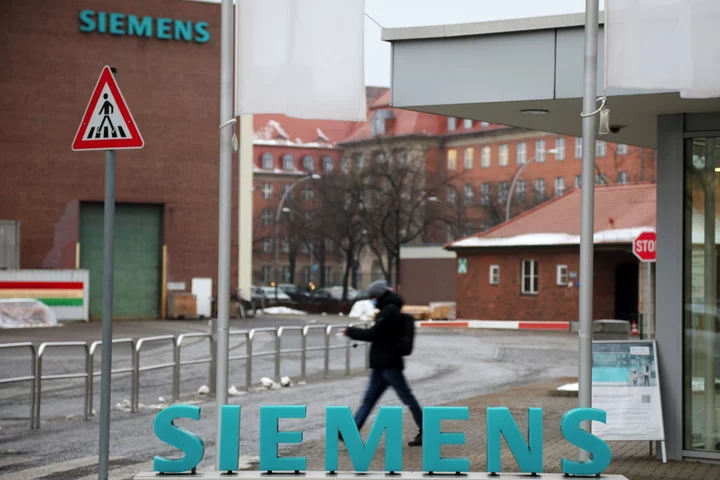
Siemens Sees Itself in ‘Supercycle’ on Climate Change Demand
Siemens AG is reaping the benefits of a deep shift to efficiency-boosting software that helps reduce the carbon
2023-05-17 17:15

Apple will let you clone your voice on your iPhone
Ahead of Global Accessibility Awareness Day on 18 May, Apple has unveiled a host of new iOS features that will be coming to the iPhone, iPad and Mac later this year. The suite of updates announced on Tuesday include accessibility features to help those with cognitive, vision, hearing and mobility disabilities and, for the first time, new tools for those who have lost their ability to speak or are at risk of losing their voice. In the future update, users with a speech disability or a recent ALS diagnosis will be able to use their Apple device to create a digital voice that sounds exactly like them. The feature, called Personal Voice, can be trained in 15 minutes simply by reading a bunch of randomly generated text prompts, and uses on-device machine learning to ensure your data is kept private and secure. The Motor Neurone Disease Association suggests that voice banking takes an average of two hours or longer with current tech, and can cost hundreds of pounds. The Independent got a first look at the new feature in action, and the Personal Voice sounded remarkably similar to the user’s actual voice, albeit with a slightly robotic, synthesised tone. Personal Voice will be available for use with Apple’s new Live Speech feature on iOS, which will let users type what they want to say and have it spoken out loud, during in-person conversations, as well as with phone and FaceTime calls. The feature is said to work with all accents and dialects. As well as features for speech accessibility, Apple announced a cognitive disability setting for the iPhone and iPad called Assistive Access, which essentially lets you pare your device down to a few core apps of your choosing. Arranged in a grid or a list, it simplifies the user interface down to large, easily readable buttons, so you can make calls, access an emoji-only keyboard, and a fuss-free camera, without the clutter. Companies such as Doro and Jitterbug currently have a stranglehold on the “simple phone”, offering devices for senior users that strip away the bulk, and deliver a simple user interface with large high-contrast buttons that make it easy to use a phone. With Apple’s new Assistive Access feature, those with cognitive disabilities will be able to take advantage of a mainstream iPhone device and its features without having to opt for an Android device or one designed for their specific need. In addition, Apple previewed a new feature in the Magnifier app for low vision users called Point and Speak, which makes use of the camera, the LiDAR Scanner and on-device machine learning to read aloud text that a user places their finger on. Plus, the company announced Mac support for Made for iPhone hearing devices, phonetic suggestions for Voice Control users and the ability for Switch Control users to turn their switches into game controllers on the iPhone and iPad. Apple has made it a tradition over the years to unveil new accessibility features ahead of WWDC in June, where it usually reveals the next iOS update, emphasising its prioritisation of accessibility within the iOS ecosystem. While Apple didn’t state when exactly the new updates would be coming to its devices later this year, a rollout alongside iOS 17 seems likely, given previous announcements. Read More Apple iPhone 15 rumours: All you need to know, from release date to price and specs iPhone 15 to add mysterious new button on the side, Apple rumours suggest Inside Apple’s Developer Academy, where future app developers are being taught to put disability first 75% of Irish data watchdog’s GDPR decisions since 2018 overruled – report AI pioneer warns UK is failing to protect against ‘existential threat’ of machines Apple highlights work of small developers amid ongoing questions about the App Store
2023-05-17 15:56
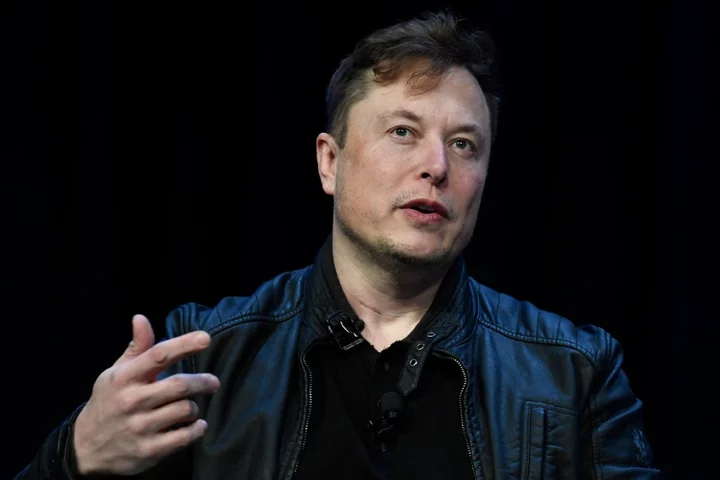
Elon Musk calls working from home ‘morally wrong’
Elon Musk faced backlash for arguing that people who worked from home were “morally wrong” because it was unfair to those who could not work remotely. In an interview with CNBC’s David Faber on Tuesday, Mr Musk described the people working remotely as “laptop classes”, saying that the issue extended beyond productivity concerns. He likened the concept of working from home to a quote often attributed to Marie Antoinette, the last queen of France before the French Revolution. “I think that the whole notion of work from home is a bit like the fake Marie Antoinette quote, ‘Let them eat cake’,” Mr Musk said. “It’s not just a productivity thing. I think it’s morally wrong.” Mr Musk criticised the hypocrisy of expecting service industry workers to go to work while others had the privilege of working from home. “Get off the goddamn moral high horse with the work-from-home bulls**t,” he said. “People building the cars, servicing the cars, building houses, fixing houses, making the food, making all the things that people consume. It’s messed up to assume that, yes, they have to go to work, but you don’t” he said. “It’s not just a productivity thing, I think it’s morally wrong.” The tech mogul has been a fierce advocate of return-to-office policies. He imposed a strict policy in Tesla in June 2022, warning employees that they would lose their jobs if they did not comply. The policy required employees to spend a minimum of 40 hours in the office a week and anything less would be “phoning it in”. “The laptop class is living in la-la land,” he said. Mr Musk’s comments on work-from-home culture generated a divided response on the internet, with many lashing out at him. “Being one of the world’s richest man, @elonmusk sounded tone deaf when he himself expects ppl to eat cake rather than share his wealth. @davidfaber just sounds like a boomer with his ‘productivity’ whining. Ppl are as productive and engaged working from home - if not more,” a Twitter user said. Another user, Lora Kolodny, pointed to another CNBC report which said Tesla will carve out deals for “exceptional” employees amid the company’s hardline policy to return to work. The report, which cited sources, said Tesla was struggling to bring all its employees back to the office due to a lack of resources. “Uhhh - REALLY!? Because as far as I know, Tesla and Twitter under Musk’s management will grant ‘exceptional’ employees right to work from home. Memba this?” Ms Kolodny said. In the hour-long interview, Mr Musk also said he did not care for the consequences of his unfiltered and unabashed views on Twitter even if it meant incurring financial losses. “I’ll say what I want to say, and if the consequence of that is losing money, so be it,” he said. He added that Twitter will attempt to rehire some of its staff after dramatically firing employees following his controversial takeover of the microblogging platform. He acknowledged that the job cuts were too deep. “Desperate times call for desperate measures… Unfortunately, if you do it fast, there are some babies who will be thrown out,” Mr Musk said, adding there is a possibility of rehiring people who were let go. Read More Lawsuit filed against Twitter, Saudi Arabia; claims acts of transnational repression committed Elon Musk subpoenaed by US Virgin Islands in Jeffrey Epstein lawsuit Linda Yaccarino: How Elon Musk may have hired his biggest critic to head Twitter AI pioneer warns UK is failing to protect against ‘existential threat’ of machines Elon Musk announces Linda Yaccarino as new CEO of Twitter How Elon Musk may have hired his biggest critic
2023-05-17 13:57
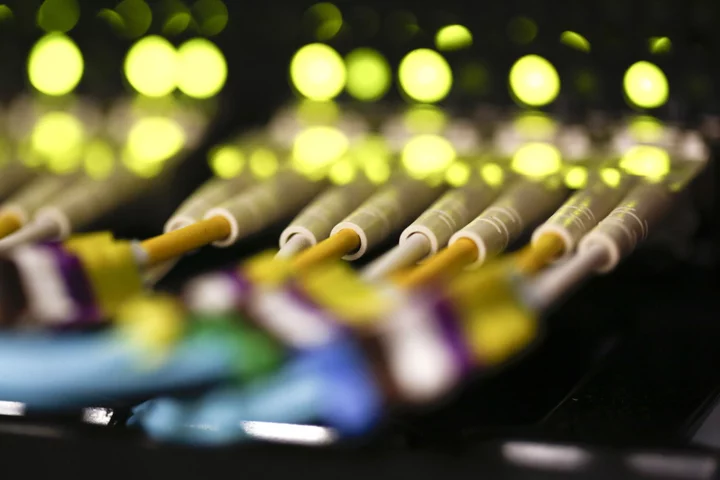
Ripple’s XRP Bucks Crypto Gloom After Latest Court Twist Sparks 8% Jump
XRP, the native token of Ripple Labs Inc.’s blockchain ecosystem, jumped the most in about seven weeks after
2023-05-17 13:50

‘Volatile’ cryptocurrency trading should be regulated as gambling, says treasury committee
Consumer cryptocurrency trading should be regulated as gambling, the treasury committee has urged. In a new report, the committee called for consumer trading in unbacked crypto assets to be treated in regulation as gambling. The cross-party committee of MPs said cryptocurrencies such as Bitcoin are being used by criminals in scams and money laundering. Unbacked crypto assets – often called cryptocurrencies – are not supported by underlying assets, the committee added. They pose significant risks to consumers, given their price volatility and the risk of losses, according to the MPs, who said retail trading in unbacked crypto more closely resembles gambling than a financial service and should be regulated as such. The report said: “We strongly recommend that the government regulates retail trading and investment activity in unbacked crypto assets as gambling rather than as a financial service, consistent with its stated principle of ‘same risk, same regulatory outcome’.” The committee pointed to HM Revenue and Customs (HMRC) figures indicating that around 10 per cent of UK adults hold or have held crypto assets. The MPs also said potential productive innovation in financial services should not be unduly constrained. They said technologies underlying crypto assets may bring some benefits to financial services, particularly for cross-border transactions and payments in less developed countries. A balanced approach should be taken to supporting the development of crypto asset technologies, while avoiding spending public resources on projects without a clear, beneficial use, the MPs said. Harriett Baldwin, chair of the treasury committee, said: “The events of 2022 have highlighted the risks posed to consumers by the crypto asset industry, large parts of which remain a wild west. “Effective regulation is clearly needed to protect consumers from harm, as well as to support productive innovation in the UK’s financial services industry. “However, with no intrinsic value, huge price volatility and no discernible social good, consumer trading of cryptocurrencies like Bitcoin more closely resembles gambling than a financial service, and should be regulated as such. “By betting on these unbacked ‘tokens’, consumers should be aware that all their money could be lost.” The committee is considering central bank digital currencies as a separate piece of work. A treasury spokesperson said: “Risks posed by crypto are typical of those that exist in traditional financial services and it’s financial services regulation – rather than gambling regulation – that has the track record in mitigating them. “Crypto offers opportunities but we are taking an agile approach to robustly regulating the market, addressing the most pressing risks first in a way that promotes innovation.” Read More Crypto rules get final approval to make Europe a global leader on regulation Is my money safe? What you need to know about bank failures Nearly 80% of APP scam cases start online, says UK Finance Charity boss speaks out over ‘traumatic’ encounter with royal aide Ukraine war’s heaviest fight rages in east - follow live
2023-05-17 12:49
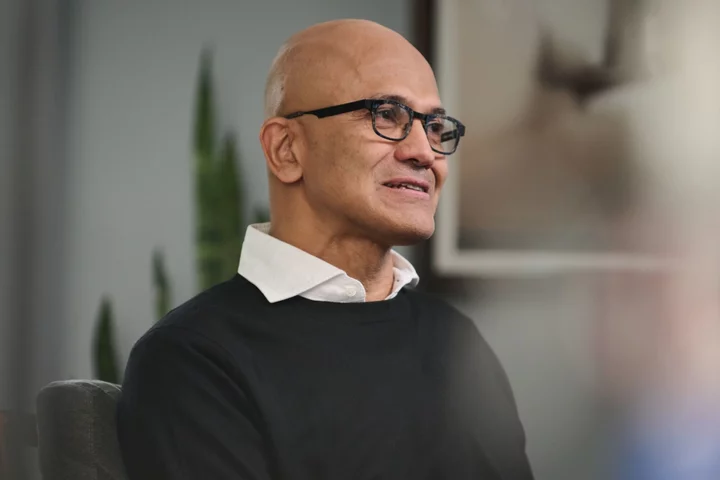
Microsoft CEO Says Smaller Companies Can Still Compete in AI
Technology giants Microsoft Corp. and Alphabet Inc. may be leading the development of artificial intelligence, but there is
2023-05-17 12:20

Crypto Trading Should be Regulated Like Gambling, UK Panel Says
Retail investing in unbacked cryptoassets like Bitcoin should be regulated like gambling because they are highly volatile and
2023-05-17 08:30
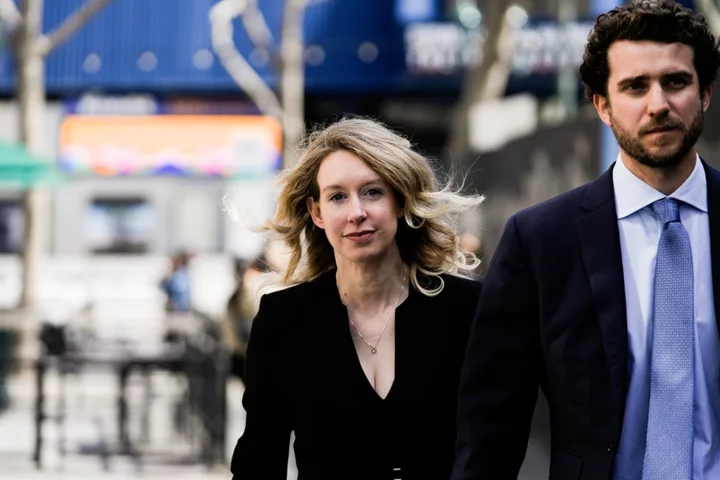
Elizabeth Holmes puts off starting prison sentence yet again
Former Theranos CEO Elizabeth Holmes may have again stalled the date by which she must report to prison by filing another appeal of her fraud conviction. Holmes was convicted by a federal jury of defrauding Theranos investors last year and was sentenced in November to just more than 11 years in prison. Holmes’s attorneys asked that she be allowed to remain free on bail while she appeals her conviction, but a judge declined that request and ordered her to report to prison on April 27. Now, though, it seems the disgraced tech star might not have to begin her prison sentence until June at the earliest. On Monday, her attorney filed a new motion of appeal of her conviction — after which Holmes was granted an immediate stay of her prison-report date, according to NBC Bay Area. The state has 21 days to respond to the appeal, after which Holmes’s defence team will have a further three weeks to file a final motion. After the final motion is filed, the Ninth Circuit Court of Appeals will consider her legal fate. The appeal filed this week is considered a longshot, but while that process is ongoing it is believed that Ms Holmes will remain free unless a judge orders her to report to prison. Holmes was back in the news last week after The New York Times published a long-form profile of her that was panned by a number of readers for its tone and credulity. Some critics, including the poet and essayist Hanif Abdurraqib, noted that Black people convicted of felonies are rarely given the same space to pitch their reformations to the media that the profile gave Holmes. Much of the article focused in part on Holmes as a mother. The former CEO gave birth to her first child in 2021 and her second child sometime around the beginning of 2023. Holmes’s former romantic partner and business partner Ramesh “Sunny” Balwani was sentenced to just under 13 years in prison on conspiracy and fraud counts for his role in the Theranos situation. He began serving his prison sentence last month. Read More Elizabeth Holmes says actors are playing a ‘character I created’ in dramatisations of her downfall Elizabeth Holmes says she’s working on new inventions but admits ‘mistakes’ in first interview post trial OpenAI CEO Sam Altman says AI can go ‘quite wrong’ Regulation ‘critical’ to curb risk posed by AI, boss of ChatGPT tells Congress Sam Altman testifies before Congress saying there is ‘urgent’ need for regulation
2023-05-17 07:46
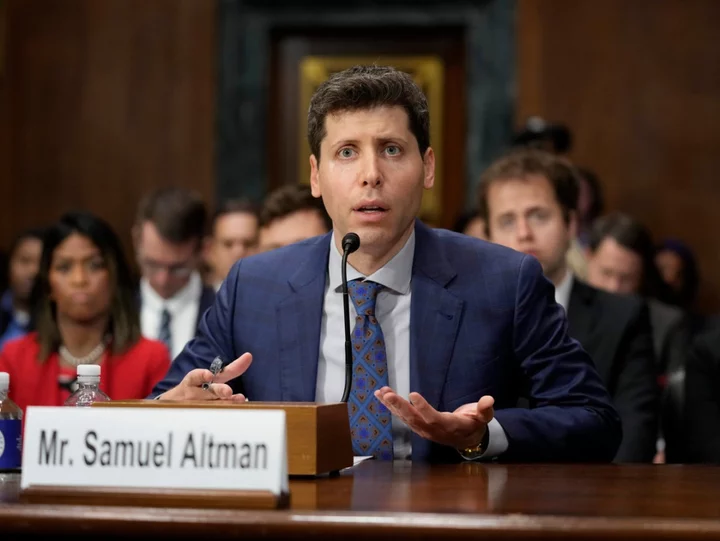
OpenAI CEO Sam Altman says AI can go ‘quite wrong’ while advocating for government intervention
Sam Altman, the CEO of the artificial intelligence company OpenAI, testified before Congress about the “urgent” need for the government to create regulations surrounding AI. “I think if this technology goes wrong, it can go quite wrong,” Mr Altman told the Senate Judiciary Subcommittee on Privacy, Technology & the Law on 16 May. Mr Altman, who has helped create OpenAI’s ChatGPT 4 and DALL-E 2, testified on the dangers AI could pose in the future without a regulatory committee or agency creating rules and holding companies accountable. Some of these dangers include spreading election misinformation, replacing jobs or manipulating people’s views. “We want to be vocal about that,” Mr Altman said. “We want to work with the government to prevent that from happening.” The OpenAI CEO was joined by IBM’s chief of privacy and trust Christina Montgomery, as well as Dr Gary Marcus, a professor at New York University and expert on AI. All three witnesses agreed that there needs to be new legislation that regulates AI. Mr Altman and Mr Marcus suggested there be a new kind of agency, either on a national or global level, that would issue licenses to AI technologies and revoke them should they not comply with safety standards. Unlike previous congressional hearings about technology and safety standards, Tuesday’s hearing was a clear bipartisan effort on all sides to understand the technology and find solutions. Lawmakers asked thoughtful questions and Mr Altman, Mr Marcus and Ms Montgomery gave in-depth answers as the group tried to find ethical solutions to regulating the powerful new technology. When asked by senators about ChatGPT’s effect on elections by spreading misinformation, Mr Altman said he is “quite concerned” about the impact AI can have on the democratic process. Mr Altman said a combination of companies abiding by ethical codes as well as keeping the public well-informed were two ways to combat election misinformation. But despite the frightening and real risks of AI, Mr Altman remained positive about the future of the technology. “We believe that the benefits of the tools we have deployed so far vastly outweigh the risks, but ensuring their safety is vital to our work,” Mr Altman said. Often, AI can be perceived as a negative thing that can take over the world and harm humans – a hypothetical situation that Senator John Kennedy (R-LA) offered during questioning. The OpenAI CEO encouraged people to look at ChatGPT as a “tool” not a “creature” when thinking about AI regulations. “It’s a tool that people have great control over,” Mr Altman said. But all three witnesses seemed confident about a regulatory agency or set of rules reducing the potential harm of AI and their willingness to be a part of it. “My worst fears are that we cause significant harms to the world,” Mr Altman said. Read More Regulation ‘critical’ to curb risk posed by AI, boss of ChatGPT tells Congress AI Congress hearing: Sam Altman testifies before Congress saying there is ‘urgent’ need for regulation Watch as OpenAI CEO faces questions from Congress on potential AI regulation Regulation ‘critical’ to curb risk posed by AI, boss of ChatGPT tells Congress Watch as OpenAI CEO faces questions from Congress on potential AI regulation Sam Altman testifies before Congress saying there is ‘urgent’ need for regulation
2023-05-17 06:56
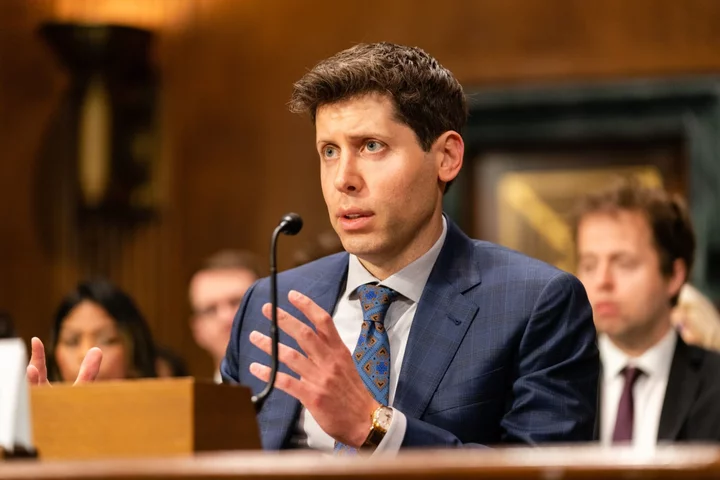
An AI CEO Went to Washington and Asked for Rules: Key Takeaways
The Senate’s first major hearing on artificial intelligence covered everything from the lighthearted marvels of generative AI to
2023-05-17 06:21
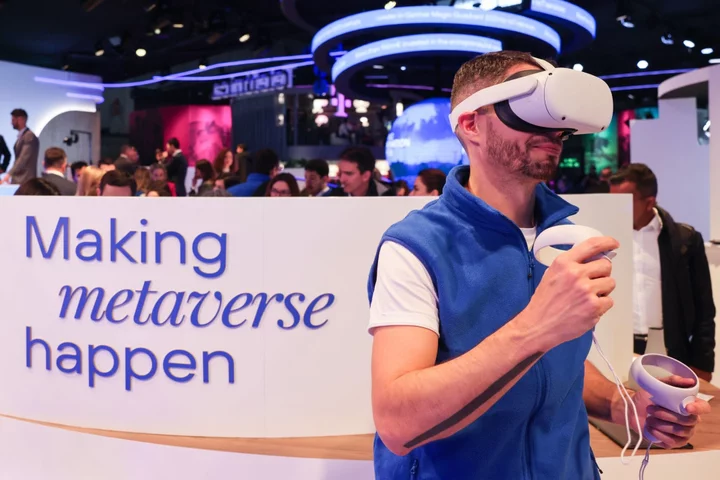
Meta Touts Metaverse’s Potential for Job Training and Education
Meta Platforms Inc. is hoping to revive interest in the metaverse by pitching it as a tool to
2023-05-17 04:48
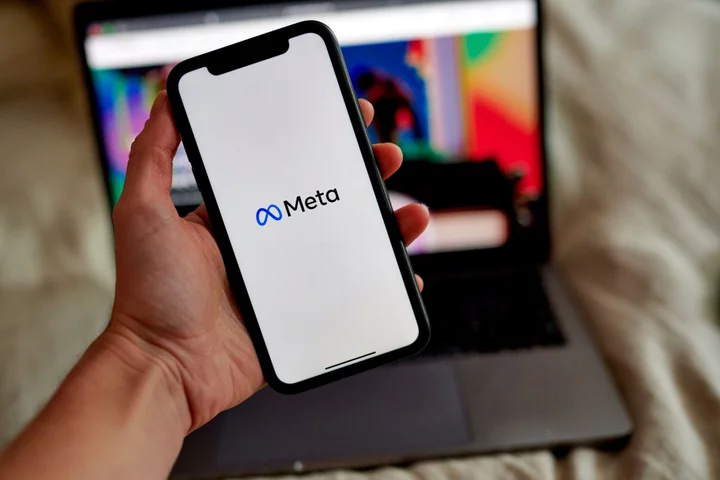
Meta’s Advertising Glitch Refunds Are Slow to Reach Small Clients
Meta Platforms Inc. has started refunding advertisers’ money for a major glitch last month that caused businesses to
2023-05-17 04:26
